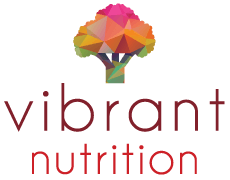May 30th, 2019
Are Eggs Good for You?
What’s the deal with eggs? First they are good, then they are bad, then they are great and now bad again?? In recent years the controversy about eggs has been as big as the end of Game of Thrones. So who’s right, what’s best and how do you know who to listen to?
Eggs are a great source of nutrition for those who eat them. They contain specific nutrients such as choline, which is very hard to get elsewhere. It’s crucial for our brain and nerve development, especially in young children. And as we age and become elders, they continue to provide essential nutrients! They are rich in highly bioavailable protein and minerals, very easy to prepare and a heck of a lot cheaper than meat!
Nutrition Breakdown on Eggs
Eggs are high in protein, vitamin A, D, E and B12, riboflavin, selenium, iron, folate and choline. Some eggs have omega-3 fatty acids added, which help protect against heart disease!
- Nutrition Breakdown of 1 large egg (50g):
-
- Calories: 78
- Carbohydrates: 0.6
- Fat: 5g
- Protein: 6g
So what’s the controversy?
Eggs’ history of bad press is rooted in a fear of cholesterol, which eggs naturally contain. Since cholesterol can contribute to heart disease, it was recommended that people limit their egg consumption to 3 eggs a week in order to stay within recommended cholesterol limits. You may also remember the public panic over saturated fats in the 1990’s, which went further to concern individuals about consuming eggs, along with other animal products.
Should I be concerned about cholesterol and saturated fat in eggs?
It is important to note the difference between blood cholesterol and dietary cholesterol. The amount of cholesterol in your body is referred to as blood cholesterol levels. The amount of cholesterol found in animal food products is referred to as dietary cholesterol. Current evidence shows that consuming dietary cholesterol does NOT actually become blood cholesterol. What does this mean? It means that research does not show a direct link between consuming foods high in cholesterol and high cholesterol found in the bloodstream.
Saturated fat has long been a concern, and can certainly have an impact on your heart health in large amounts. However, there is less saturated fat (1.6g) per egg than unsaturated fat (2.7g). Many healthy foods have a combination of saturated and unsaturated fatty acids, and this low content does not justify the boycott of an otherwise nutrient-rich food.
Should I be Eating Eggs?
Everyone can eat eggs if they wish to. They are a versatile food, a great source of protein, vitamins, and minerals and they taste great! If you have generally good health (without diabetes or history of heart disease and normal blood cholesterol) eating an average of one whole egg per day does not increase the risk of CVD.
If you do have high blood cholesterol, diabetes or heart disease, you can eat eggs as well. Limiting your intake to two or less whole eggs per week can help prevent cardiovascular disease.
Who should avoid eggs?
Well, really no one except vegans ???? However, if you are eating 3 eggs per day or more, you are likely not getting nutrients from other healthy foods.
Cooking eggs properly is also essential for higher-risk groups because of the risk of foodborne illness. Eating raw or lightly cooked eggs can be especially risky for:
- young children
- the elderly
- pregnant women
- people with weakened immune systems
Should I be Eating Only Egg Whites?
No! The yolk is full of most of the nutrients found in an egg. It also contains a large amount of the cholesterol found in eggs, so in the past it was thought of a good way to reduce cholesterol consumption. We now know that dietary cholesterol does not directly affect blood cholesterol- so enjoy the yolk!
So What are The Recommendations?
The consensus among scientists: Cholesterol in food has little effect on the amount of cholesterol in the bloodstream. That means that eating eggs which contain about 190 mg of cholesterol, is NOT going to raise your cholesterol levels significantly. So enjoy eggs, but make sure your diet ALSO includes a wide variety of plant-based protein foods so you are not missing out on nutrients.
Still Worried about Cardiovascular Disease?
Preventing CVD involves a lot more than watching your egg consumption. Eating an overall healthy diet rich in fibre, fruits, vegetables, whole-grains and plant proteins is key! Limiting saturated fat, trans fat, added sugars, and refined starchy foods are also important preventative strategies.
The Bottom Line
Healthy people, eat an egg per day! Kids can have two!
People with advanced heart disease or whom are in secondary prevention or have poorly controlled type 2 diabetes, stick to 4 whole eggs per week, as many egg whites as you like!


